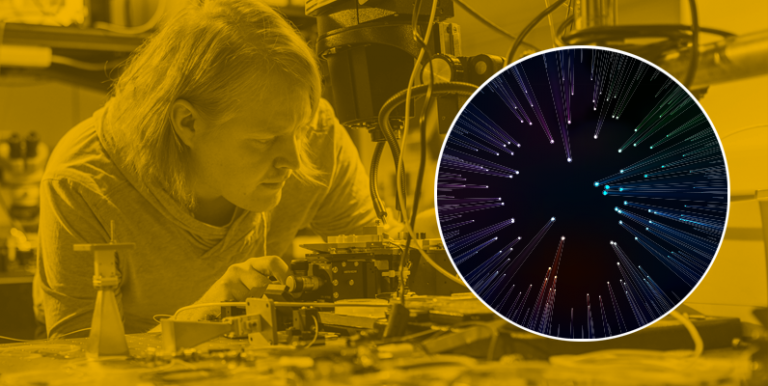UCL researchers define the future of photonics
7 September 2020
UCL Researchers have contributed to a report published today that looks to define the future focus of photonics research.

Author: Dr Rob Thompson, Institute Manager
Photonics | Future Research | Government
Members of UCL's Photonics and Optical Networks research groups have contributed to a report published today that looks to define the focus of photonics research in a decade or more from now.
The groundbreaking horizon scanning report on the future of photonics research has been released by the Photonics Leadership Group (PLG) and the All-Party Parliamentary Group in Photonics and Quantum. The document brings together 26 of the UK’s leading photonics researchers from 20 different institutions to ask “what will be the focus of photonics research a decade and more from now?”
Three researchers from UCL were part of the contributing group, Dr Katarzyna Balakier EPSRC Fellow and Proleptic Lecturer within the UCL Department of Electronic and Electrical Engineering along with Professor Alwyn Seeds, Head of the UCL Photonics research Group and Professor Polina Bayvel, Head of the Optical Networks research Group.
The report identified 70 research topics that will be the focus of future photonics research spanning materials, optical phenomena, manufacturing processes, optical networks, devices and systems. Identified highlights include significant developments in existing areas of research, such as integrated photonics, and new areas such as biodegradable photonics.
Recognised the importance of social and economic drivers the report also identifies nine major challenges that photonics will have a leading role in addressing. These major challenges have applications ranging from future mobility, healthy-aging and real-time secure communications to responsive manufacturing, food production and defence.
Dr Balakier, leading on the UCL input to the report said:
"This report looks to hi-light the level to which we rely on photonics and how important the research in this field is. Imagine the world without the internet - this is how the world without photonics research would exist. This report looks to the future, which is obviously hard to predict, but what the report clearly shows is a bright future for photonics, with many challenges facing the 21st century society dependent on advancements in this research field"
Discussing the process of creating the document John Lincoln, Cheif Executive of the PLG said:
"Alongside the highly valued inputs from some of the most renowned UK photonic academics, it has been a privilege to work with a team of dedicated early career photonics researchers to pull this horizon scanning project together. They will be the leaders of the future taking these concepts forward over the next decades”
The report sets out a strong and vital research outlook for photonics with the UK, the research undertaken at UCL will continue to be a leading strength in this field, with the importance of our work shown through the inclusion in this report.
Commenting on the report Professor Alwyn Seeds, Head of the UCL Photonics research Group, said:
"UCL Photonics research is remarkable in that it spans the subject from the development of new materials and devices, such as our pioneering work to create the first practical semiconductor lasers monolithically integrated on silicon substrates, to work on new systems, such as THz wireless over fibre communications and high bit-rate coherent links for satellite communications. It has been a pleasure to contribute to this important report from the Photonic Leadership Group, setting out the opportunities for UK research in photonics to create the industries of the future.”
Links
Dr Katarzyna Balakie profile
Professor Alwyn Seed's profile
Professor Polina Bayvel's profile
Future of photonics research 2030 and beyond report
UCL Photonics research Group
UCL Optical Networks research Group
UCL Institute of Communications & Connected Systems
UCL Electronic & Electrical Engineering
UCL Engineering
 Close
Close

